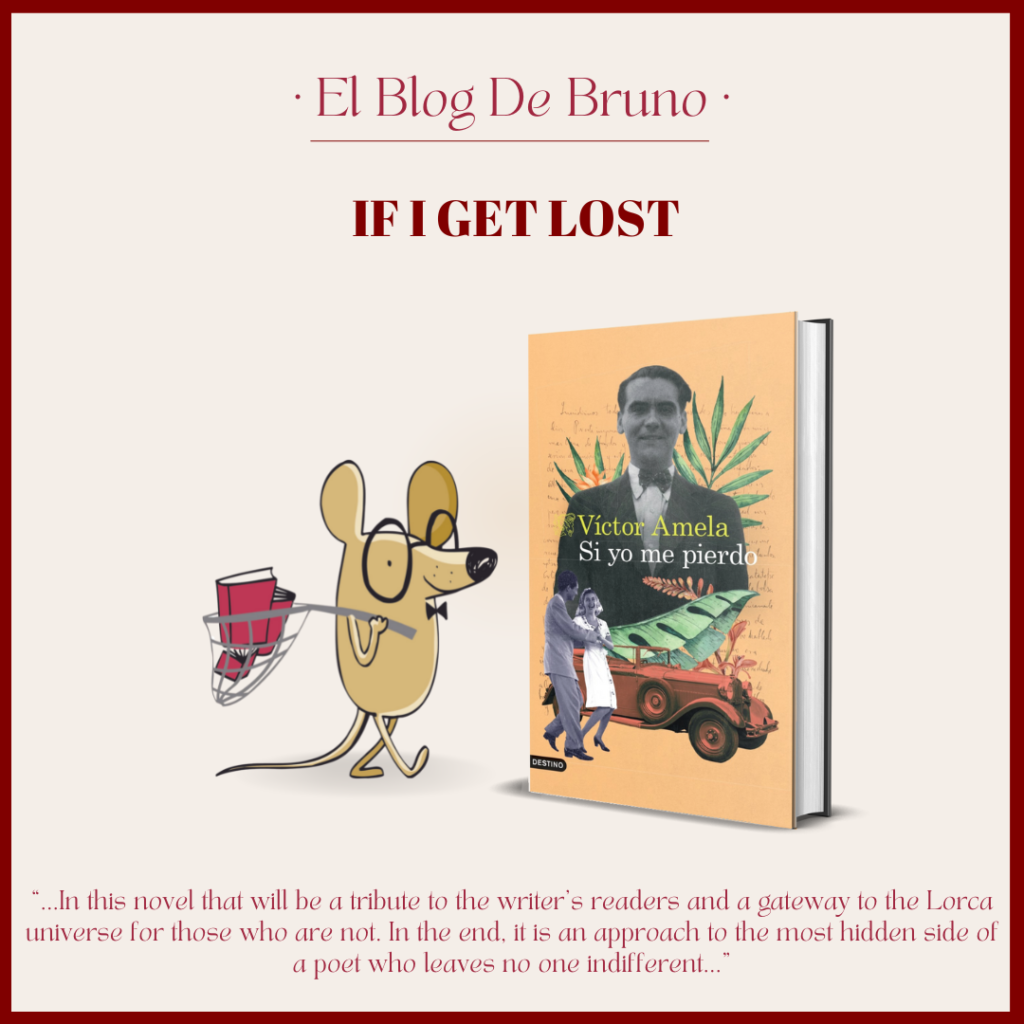GETTING LOST SOMEWHERE LIKE CUBA
Federico García Lorca is one of the classic authors I have enjoyed the most. His emblematic works LA CASA DE BERNARDA ALBA, BODAS DE SANGRE, or POETA EN NUEVA YORK, which I read as a student, made room for this author in my imagination forever. I was lucky enough to work at Mercedes Casanovas agency when I started in this world, being only 18, and she managed the rights for Lorca’s heirs. The feeling of being able to participate in the process of managing the works of one of my favourite writers was a luxury, a passion, part of a dream. The perfect combination to make me fall in love with this particular business of being a literary agent. And I think Lorca had something to do with me staying there.
Now that Víctor Amela, an emblematic author whom I have proudly represented for years, is once again deepening the character of LORCA in his new novel SI YO ME PIERDO, published by Destino, it makes me think that my affair with Lorca was no coincidence. I had the same feeling after reading Victor’s first novel about the poet, YO PUDE SALVAR A LORCA. I discovered exciting things about this charismatic character, whose portrait I have completed by immersing myself in SI YO ME PIERDO. In this novel, Victor tells us about the 98 happiest and unknown days of the poet’s life in the golden Cuba of 1930. It has been, without a doubt, one of the most exciting reads of this year. Not for nothing is he one of the best journalists in the country and a marvellous writer.
Federico García Lorca landed in Cuba from New York in March 1930, invited for a week. But it was more than three months before the Andalusian poet decided to return to Spain, intoxicated by Caribbean music and beauty, soneros and santeros, terraces and palm trees, white rum, black sensuality, and nights on the Malecón.
What did the poet do in “the happiest days of my life”, as he defined his Cuban days? How did Cuba colour Federico’s work, his person, and his destiny? “If I get lost – he told his parents in a letter – they should look for me in Cuba”. And he did get lost. To find himself? This novel tells the story, and you can smell that Cuba of the 30s and feel a happiness that we have almost never seen in Lorca, that only there he knew how to express it. The big question is: Why didn’t he stay there forever? What pushed him to return? Víctor Amela reveals it to us in this novel that will be a tribute to the writer’s readers and a gateway to the Lorca universe for those who are not. In the end, it is an approach to the most hidden side of a poet who leaves no one indifferent.



